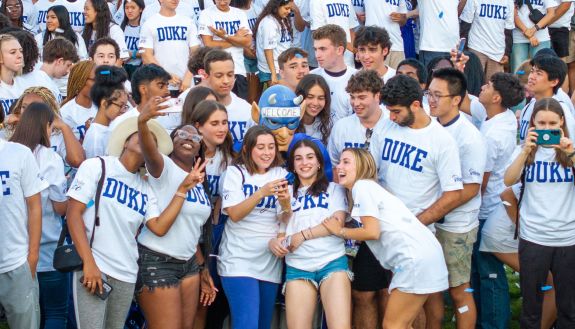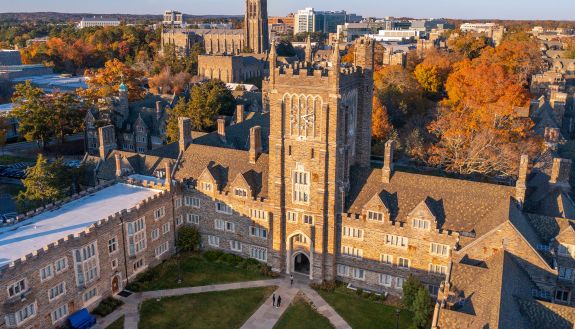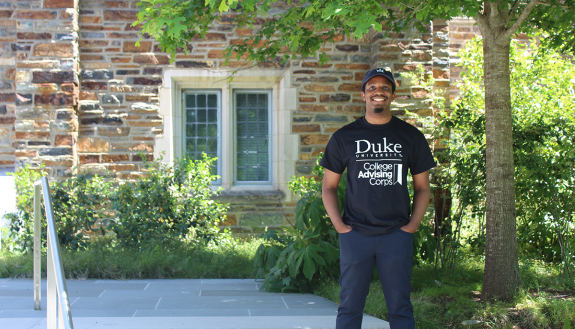Duke Joins National Network Promoting Higher Ed in Overlooked Rural Areas
STARS College Network expands information about higher ed opportunities

Organizers say high-schoolers in rural areas can be overlooked by college admissions efforts, and miss out on ads or events aimed at stirring their interest in attending a school farther from where they live.
High school counselors in these small towns can be overburdened. STARS says the average national caseload for rural counselors is 310 students, with a high of 574 in rural Michigan.
“This means that students may have less access to educators and college access professionals who have broad experience and familiarity with the full spectrum of college opportunities,” according to the organization.
High school counselors in these small towns can be overburdened. STARS says the average national caseload for rural counselors is 310 students, with a high of 574 in rural Michigan.
Christoph Guttentag, Duke’s dean of undergraduate admissions since 1992, said most college students attend campuses within a day’s drive from their home. STARS will bring more awareness that attending a top-level school like Duke is possible, despite living in a small town far from Durham.
“And from my perspective, anything that reaches out to students to provide them opportunities or ideas of opportunities that they might not otherwise have considered is a positive, and that's what I think this does,” Guttentag said.
“One of the strengths of this program is that it's both public and private universities. It's a wide range of institutions, and that speaks volumes of the nature of the effort, and how it's less about the particular colleges and more about making sure that students know about opportunities that they might not have been exposed to.”
Duke’s incoming Class of 2028 comes from all 50 states – a first in at least a decade – with 18 percent hailing from the Carolinas. More than half of the roughly 1,730 students identify as students of color, while 53 percent are women.
“For us to be part of STARS matches our mission to have a student body and a community that's diverse in all kinds of ways, and the backgrounds and the experiences,” Guttentag said.
“The viewpoints that students from small towns, from rural areas bring to a community are valuable in and of themselves, and valuable as a way of having everybody in the community be exposed to a wider range of experiences than they would otherwise, would be great.”
The first group of students who benefit from the program would start at Duke in fall 2025.
The network says an estimated $7.4 billion will fund its mission over the next decade. This funding includes a mix of financial aid provided directly by participating institutions to students, and expanded support from foundations, nonprofits and governmental agencies.
“So one of the wonderful aspects of this is the flexibility it gives each institution to think about what's going to work best for them, and best for the students that they're interested in,” Guttentag said. “Different institutions can think of different ways to contribute to the overall effort. Some of it is virtual, some of it’s in person. some of it is geared toward students and families; some of it is geared toward school counselors. Some of it's bringing either students or counselors to campus.”
Guttentag added that STARS “matches beautifully” with the Initiative for the Students from the Carolinas that Duke launched in fall 2023.
The initiative provides full tuition grants for undergraduate students admitted to Duke from North Carolina and South Carolina whose family incomes are $150,000 or less.
For Duke students who are residents of the Carolinas with family incomes of $65,000 or less, Duke provides full tuition grants, plus financial assistance for housing, meals and some course materials or other campus expenses, without the need for student loans.
In addition, Duke joined the national College Advising Corps in 2014 to increase the number of low-income, first-generation college and underrepresented high school students from rural North Carolina. The program recruits and trains recent college graduates to serve as advisers in underserved high schools.
RELATED STORIES


